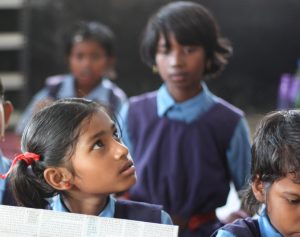Catching up and summer schools
 Two recent news articles by the BBC: “Covid: Catch-up narrative putting ‘huge pressure’ on children, psychologists say” (22 February 2021 – read the PDF of the article here) and the Telegraph: “We must be as radical in helping schools as we were with vaccines” (22 February 2021) have highlighted the psychological and educational impact the pandemic and lockdown policies have had on children.
Two recent news articles by the BBC: “Covid: Catch-up narrative putting ‘huge pressure’ on children, psychologists say” (22 February 2021 – read the PDF of the article here) and the Telegraph: “We must be as radical in helping schools as we were with vaccines” (22 February 2021) have highlighted the psychological and educational impact the pandemic and lockdown policies have had on children.
The loss of so much time in school will inevitably be damaging to the most vulnerable and disadvantaged children. Many will also be relatively unscathed because their parents have homeschooled them well. Many schools have supported children well too and provided online lessons and well-structured learning programmes.
It is also important to be aware of the mental health of children who have been out of school for months. Many will be affected by the isolation and lack of socialisation. Some may need extra support emotionally as well as educationally.
The focus should be on those who have been most affected. However, it is difficult to identify and target that help without making it available to a much wider group of children. Those who are designated with special needs can be more easily targeted. However, there will be a much wider group of children who would not normally have presented with specific needs but who will now need assistance. I think it is also important to focus on the primary school children to ensure that their numeracy and literacy skills are sufficiently developed before they move into the secondary system.
There are a number of potential options. Some of these will be less effective or are non-starters:
- Tutoring Sessions – This may have some good effects, but it seems as if the National Tutoring Programme for the most part is not being staffed by teachers. Whilst it is possible for university students and untrained tutors to be of some assistance to children will not be as valuable as the assistance a trained teacher can give. Teachers can properly assess a child’s need and really focus on what the child specifically needs.
- Repeating the School Year – This idea will not work. It would create tremendous problems in the system. All the new entrants to school would have to start a year later because those a year in front of them would have to repeat the year. The universities and colleges would have a year with virtually no students.
The options I would endorse are as follows:
- Summer Schools – There are many problems with launching large-scale summer schools. Teachers will be exhausted by the summer because of the pressures of teaching both online and in-person through the recent lockdown. As this is outside their contractual obligations it also likely to be resisted by teaching unions unless they are paid. The most vulnerable and disadvantaged children are also less likely to attend in high numbers too and this is really the target audience. However, the government’s announcement that summer schools could focus on the year 6 children moving up to year 7 is a more focused and plausible way forward. It will help ensure that children who are facing secondary school will do so with at least some of their numeracy and literary issues being addressed. And this is crucial because it is much more difficult to solve these problems in the secondary school environment where children move from classroom to classroom and subject to subject. Without good numeracy children will face problems in maths, IT, chemistry and physics and without good literacy skills they will struggle not only in English and the humanities but every other subject too. I believe the government should focus on this year group more than any other.
- Extending the School Days – This idea does have some traction providing it is organised well. If there was a modest lengthening of the day it wouldn’t be too onerous. Primary schools could start 30 minutes earlier and finish 30 minutes later for one term. This would make up a considerable amount of time in children’s learning. This would be more problematic in secondary schools due to the problems of timetabling.
- Homework – This is a means by which children’s learning can be reinforced. Setting targeted homework can build on the extra learning that is required. Proper homework in primary schools has not been popular but it is essential if children are to catch up. It is one of the reasons prep school children are often in front of their peers in the state system – they do homework!
- Literacy and Numeracy – Although it is important to provide a broad and balanced curriculum, it may be necessary for the next few months in primary schools to have a narrower band of subject material in favour or literacy and numeracy.